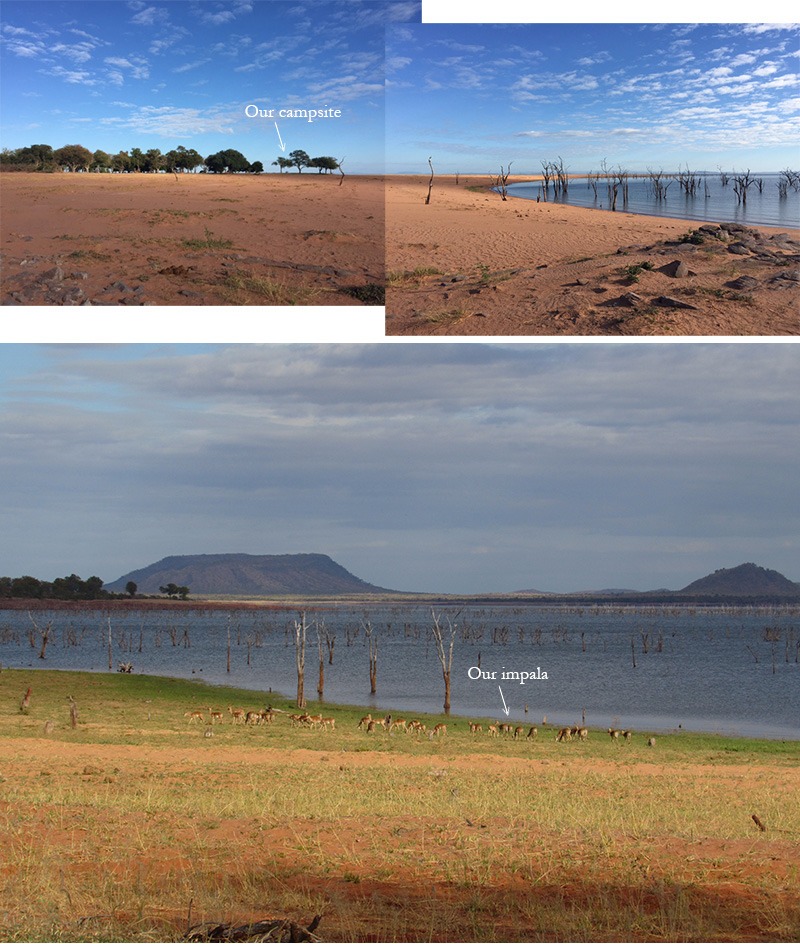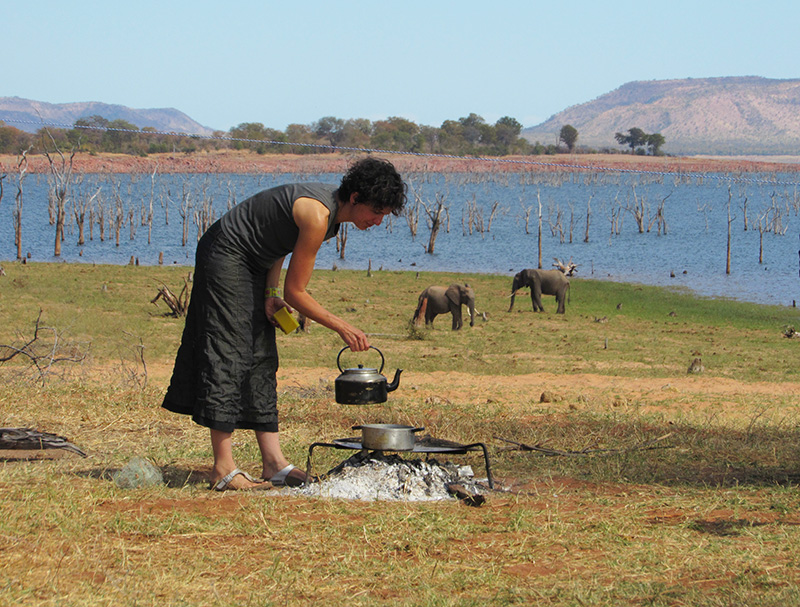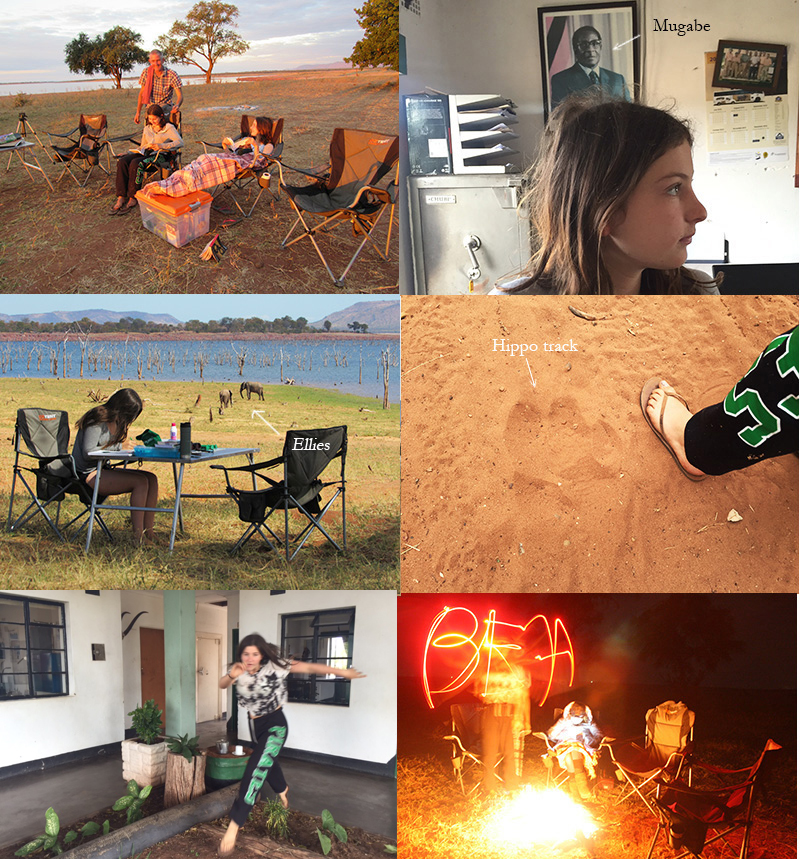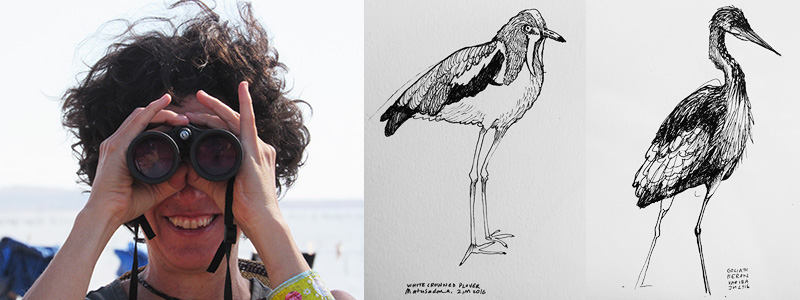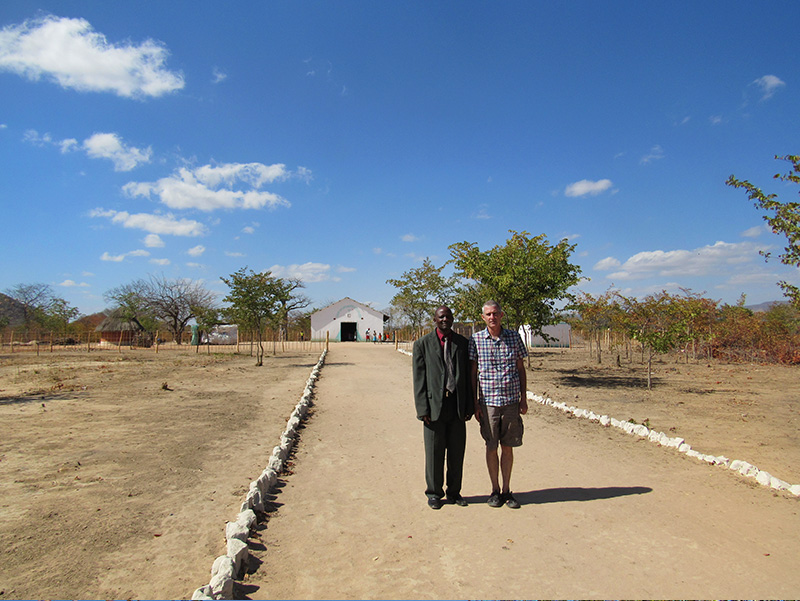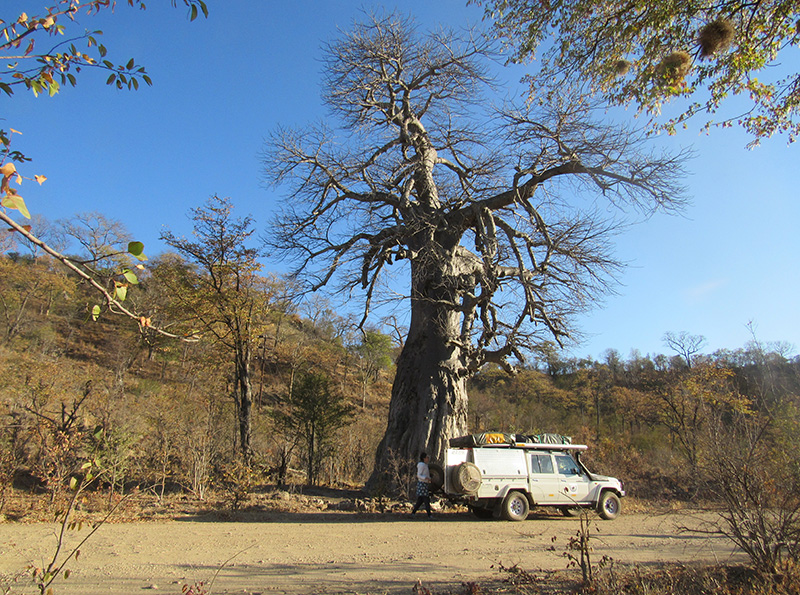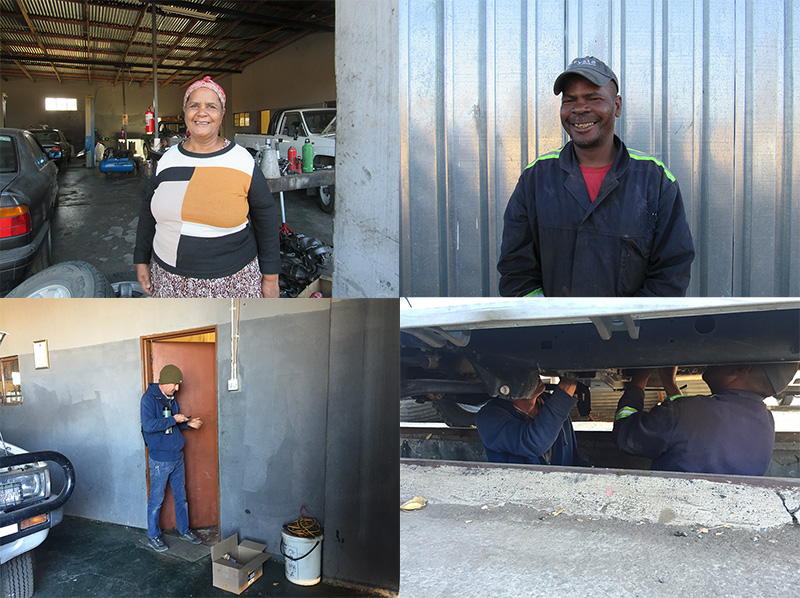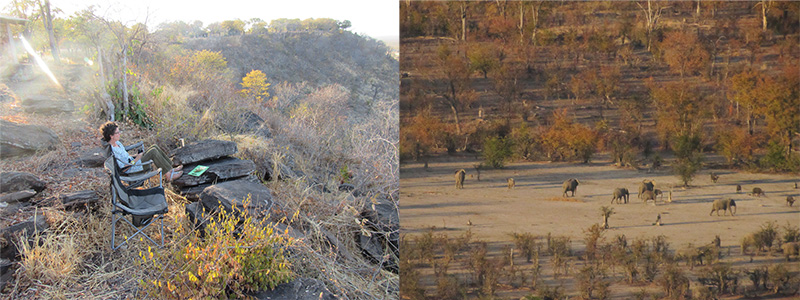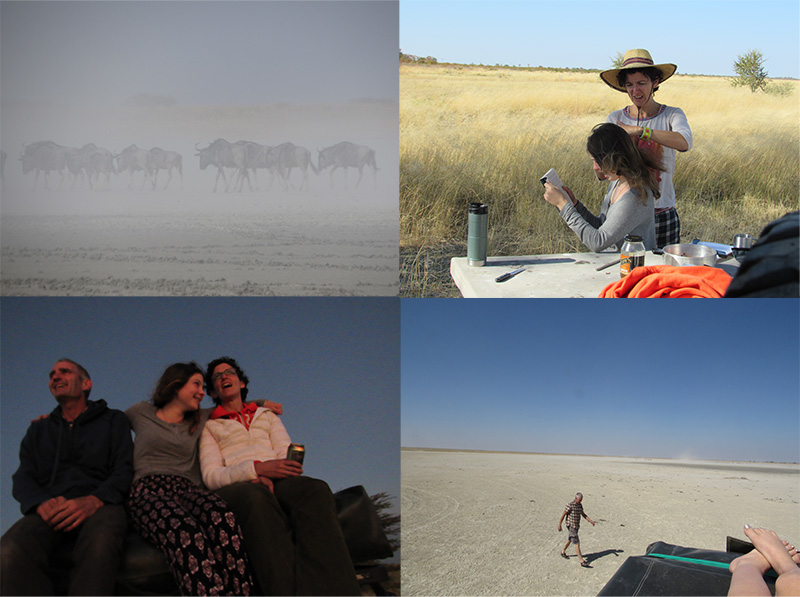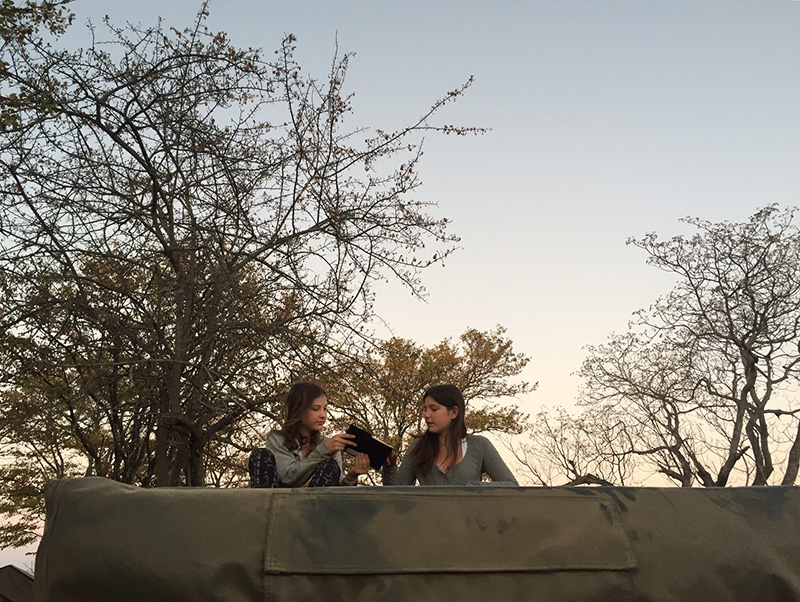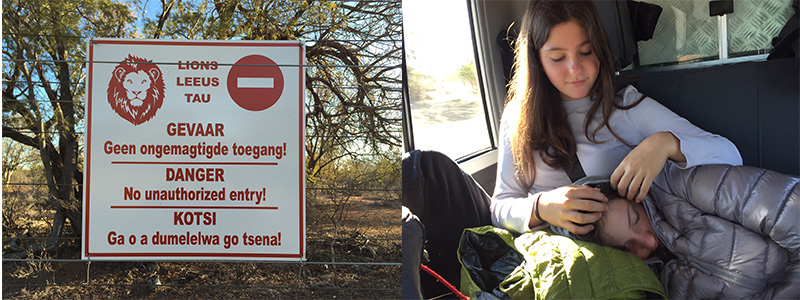What a relief! We arranged a 7.5 hr ferry ride from Matusadona to Kariba Town, arranged for the local crocodile farm to get crocodile feed from the mainland. The croc farm at Matusadona employs 400 people, the one at Kariba Town 1000. Meat and skin exported, this was the only sign of commerce we’ve seen in this part of Zim.
Thank goodness we have Ralph to reverse the car down rickety ferry ramps. His ability to reverse ranks up with ‘good teeth’ as a (initially sub-conscious) reason I chose him as a mate.
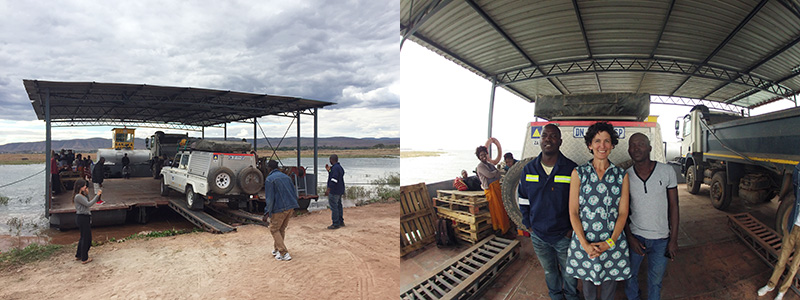
Inside information
Arnold the Senior Game Warden at Matusadona waited for the ferry with us at dawn.
“Anyone been eaten lately?” we couldn’t resist asking. Arnold told us a lion ate a careless ferry workman a couple of months ago. The rangers had to shoot the lioness and her cub, to the upset of the British lion researcher working there. A shoreline fishermen got his leg bitten off by a hippo. No instance of crocodiles attacked people. Any animal that has a violent interaction with a human has to be killed.
The National Parks are no longer run directly by the government, he told us, they’re parastatal and partly funded by donors, NGOs and park/camping fees. Obviously it’s not working, given the state of the road in and the infrastructure. Arnold said there is some poaching, the rangers have to patrol and deal with it. Shooting a poacher dead is called a “successful contact”.
Names
On the ferry we got chatting to locals. They had the most inspiring names, like, ever. Marvellous. (That was one). I made a toddler called Fallen cry. One guy, Bouf, had children named Praise, Pretend and Predominance. Why does that make me think of you Tiu de Haan! You need to visit this country!
